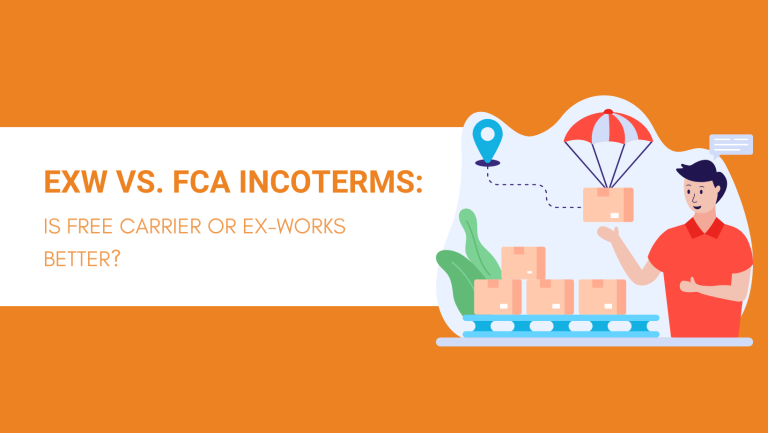If you’ve had to buy in bulk and trade internationally at least once, for sure you’ve come across the dilemma of EXW vs. FCA Incoterms.
Out of eleven Incoterms, sellers love FCA and Ex-Works (EXW) the most, but buyers – not so much. Sellers that don’t want to get involved with transport logistics typically use these Incoterms. But, will they fit the buyer?
If you want to start buying wholesale from China, you’ll find tons of value in this blog.
Let’s jump right in!
What Is EXW Incoterms?
EXW Incoterms is one of eleven International Commercial Terms set in place by the International Chamber of Commerce (ICC).
EXW stands for Ex-Works and it’s used for any mode of transport.
Under Ex-Works terms, the seller is obliged to make the goods accessible at a named place (typically the seller’s premises), but they don’t have to load or deliver the goods to the port of export.
So after picking up the cargo from the seller’s premises or another agreed location, it’s all up to the buyer – export, risks, and costs.
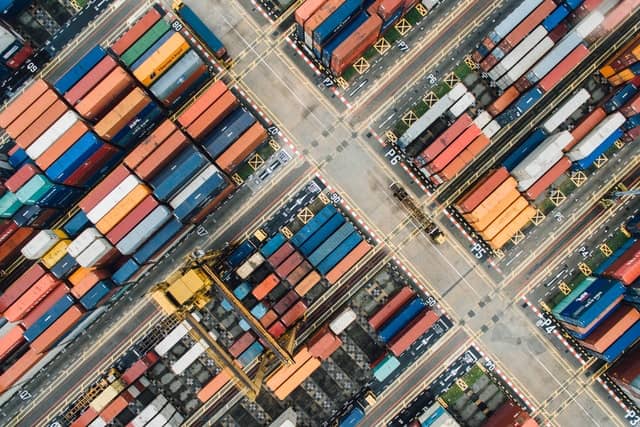
EXW Seller’s Responsibilities
Out of all 11 Incoterms, EXW comes with the smallest risk and responsibility on the seller’s side. Here’s what sellers are responsible for under Ex-Works terms:
- Packaging and making the cargo accessible and available to the buyer at the named place (usually at the seller’s premises)
- Providing an invoice
That’s it. No, seriously.
EXW Buyer’s Responsibilities
There’s a good reason why buyers shouldn’t use EXW for international trade – most of the risks and responsibilities fall on their back:
- Exporting procedure and costs
- Transport until the main vehicle
- Loading the goods onto the vehicle
- Insurance and delivery costs
- Import costs and procedures
- Delivery from the port of arrival to the final destination
As you can see, the buyer is responsible for everything after picking up the cargo from the agreed location in the seller’s country.
What Is FCA Incoterms?
FCA Incoterms stands for Free Carrier and it’s another one of the 12 different Incoterms established by the ICC.
Under FCA terms, the seller is responsible for exporting and delivering the goods to the carrier at the named place of delivery – typically this is a shipping port or an airport.
Once the carrier takes the cargo, the seller is no longer responsible.
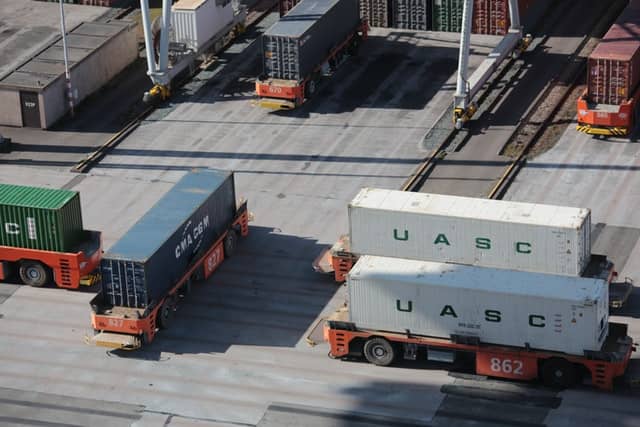
FCA Seller’s Responsibilities
- Loading at origin
- Export and customs clearance
- Delivering the goods to the carrier at an agreed place
- Invoice, bill of lading
FCA Buyer’s Responsibilities
- Organizing a carrier to pick up the cargo from the named place of delivery
- Loading the cargo on the main transport vehicle (ship or plane)
- Carriage or transport
- Cargo insurance
- Unloading at the destination port
- Import and customs clearance
- Delivery to the final destination
FCA Pros and Cons for Sellers
Let’s see the reasons why sellers would like or dislike using FCA Incoterms:
Pros
- Unloading at the port of export is not the seller’s obligation
- Don’t must load the cargo on the main transport vehicle
- Sellers aren’t responsible for shipping, insurance, unloading, import, or anything else after the first carrier
Cons
- Taking care of the export costs and procedure
- Risk and liability of loading the cargo on the vehicle organized by the buyer at the named place of delivery
FCA Pros and Cons for Buyers
Now, we’ll take a look at the pros and cons of FCA for buyers:
Pros:
- Buyers don’t have to take care of export procedures or costs, so they won’t be the exporter on record
- Loading the goods at origin is the responsibility of the seller and they take the liability and risk of damage
Cons:
- The buyer is responsible for loading on the main vessel (sea/air)
- Paying for the transport and insurance of the goods
- All other costs and liabilities transfer to the buyer as soon as the seller loads the goods on the pre-carrier
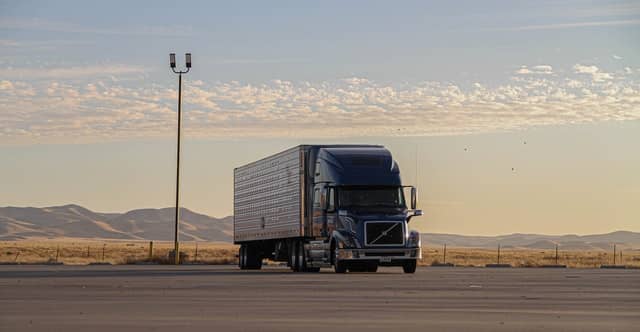
EXW Pros and Cons for Sellers
Here are the pros and cons of EXW for sellers:
Pros:
- The seller has zero costs
- They aren’t responsible for anything but making the cargo accessible and available at their premises for pickup
Cons:
- N/A
EXW Pros and Cons for Buyers
And, finally, let’s see why buyers don’t like EXW so much:
Pros:
- More control over the shipping
- Good if you use a dropshipping agent in China
- Could be a good option for domestic trading
Cons:
- Buyers pay for everything (pickup, loading, transport, export, import, insurance, etc.)
- They also take all the liability and risk for the product after picking it up from the seller’s premises
- Buyers have to take care of export in a foreign country
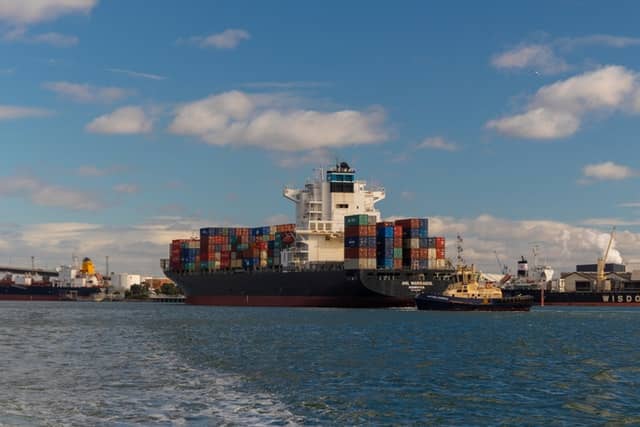
EXW vs. FCA Features Comparison
Now, let’s compare the individual features of EXW and FCA:
Loading at origin
EXW – The buyer loads the cargo from the seller’s premises
FCA – The seller loads the cargo for delivery to a named place
Export and customs
EXW – The buyer is responsible for exporting
FCA – The seller is responsible for exporting
Site of delivery
EXW – The site of delivery is the seller’s premises
FCA – The site of delivery is the named place previously agreed in the contract
Loading on the main carriage
EXW – The buyer’s responsibility
FCA – Also the buyer’s responsibility
Main carriage
EXW – The buyer covers the costs and has liability
FCA – The same, it’s the buyer’s responsibility
Insurance
EXW – Buyer’s responsibility
FCA – Also the buyer’s responsibility
Unloading and import
EXW – The buyer’s responsibility
FCA – The buyer’s responsibility
Carriage to place of destination
EXW – It’s the buyer’s responsibility to organize the final carrier
FCA – Also the buyer’s responsibility
FAQs about EXW and FCA
Now, we’ll give you the answers to some of the most frequently asked questions about EXW and FCA Incoterms to clear up all your doubts.
What Is the Meaning of FCA in Shipping Terms?
FCA stands for Free Carrier and it can be used for all modes of transport. Under FCA Incoterms, the seller is responsible for exporting and delivering the cargo to the agreed “named place” (it can be a port). From the moment the cargo is delivered to the named place, the buyer takes all responsibility.
What Is the Meaning of EXW in Shipping Terms?
EXW is a shortcut for Ex-Works and this type of Incoterms can be used for all modes of transport. EXW terms place all the responsibilities on the buyer. The seller is only responsible for making the goods accessible for pickup (typically at the seller’s premises).
Are FCA and Ex-Works the Same?
Both FCA and EXW place the majority of the responsibility on the buyer. But, no, they’re not the same. FCA stands for Free Carrier, and EXW stands for Ex-Works.
With FCA, the seller’s responsibility stops once they load the goods on the carrier sent by the buyer.
With EXW, the seller is responsible only to make the cargo available at a named location (typically the seller’s premises).
What Is the Difference between EXW and FCA?
If we compare FCA and Ex-Works, we find just two differences:
- Export – under FCA, the seller has to clear the cargo for export, while with EXW this is the buyer’s responsibility.
- Carrier to the port of export – under FCA, the seller loads the cargo on the vehicle organized by the buyer. Under EXW, the loading is the buyer’s responsibility and the risk of damage falls onto them
What Is the Difference between FCA and FOB Shipping?
FCA stands for Free Carrier and FOB stands for Free On Board. FCA is used for all transport modes while FOB is for sea and inland waterway transport. The main difference is that under FOB Incoterms, the seller delivers and loads the goods on the main vessel, while under FCA they deliver the goods only to the agreed location.
What Is the Difference between FCA and DDP?
FCA means Free Carrier and DDP stands for Delivery Duty Paid. Both Incoterms are used for all modes of transport. DDP is practically the opposite of FCA since it places all the responsibilities on the seller.
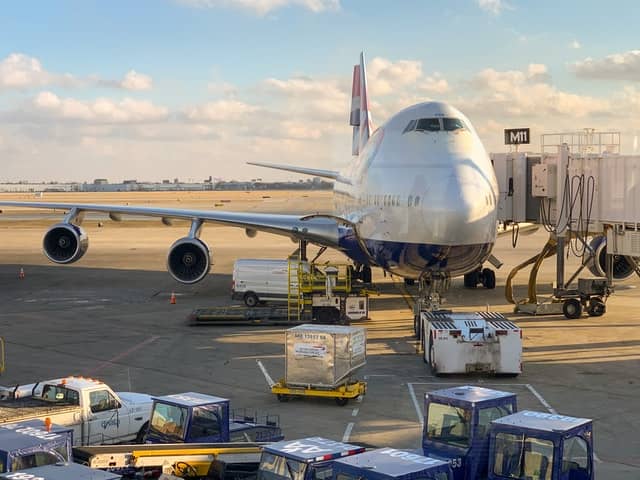
Under DDP, the seller covers absolutely everything and delivers the cargo to the final destination (typically the buyer’s premises).
What Are the 11 Incoterms 2020?
Incoterms stands for International Commercial Terms and it’s a set of 11 standardized agreements for international trade. FCA and Ex-Works are just 2 out of 11 terms regulating international deliveries.
The International Chamber of Commerce (ICC) updates these Incoterms every 10 years. The last time they were updated was 2020. So, that’s why you’ll often see discussions about Incoterms 2020 – the newest release of International Commercial Terms:
- Cost Insurance and Freight (CIF)
- Carriage and Insurance Paid (CIP)
- Free On Board (FOB)
- Ex Works (EXW)
- Free Carrier (FCA)
- Carriage Paid To (CPT)
- Delivered At Place (DAP)
- Delivered at Place Unloaded (DPU)
- Delivered Duty Paid (DDP)
- Free Alongside Ship (FAS)
- Cost and Freight (CFR)
What Is a Bill of Lading Under FCA?
Under Incoterms 2020, the FCA terms got an update.
Now, the buyer can instruct the carrier to issue a bill of lading to the seller.
This bill of lading document confirms that the carrier has received the cargo from the seller on that date and the goods were undamaged and in a good condition.

What Incoterm Is Best for the Buyer?
If we’re choosing between EXW and FCA, then FCA is definitely the better option. That’s mainly because it transfers the risk to the buyer later in the delivery process.
With EXW, the seller is responsible for just providing the goods for pickup at the seller’s premises. From that moment on, the buyer is responsible for everything – including the export, loading risk, transport arrangement, costs, etc.
With FCA, on the other hand, the seller has to deliver the goods to the port, take care of export, and safely load them on board the vessel or plane.
So, for buyers, FCA is definitely the superior option between the two.
However, if we’re talking about all Incoterms in general, then CIF Incoterms (Cost, Insurance, Freight) and DAP (Delivered At Place) are among the best options.
Is EXW Appropriate for International Trade?
Although EXW is an Incoterm, it’s not very well suited for international trade, unless you use a dropshipping agent in the seller’s country.
Why? Because under EXW, the delivery takes place at the country of origin, typically at the seller’s premises. In this case, the buyer takes responsibility for everything in a country where they’re not physically present. This complicates things for the buyer, especially when it comes to export.
EXW is not a good choice for buyers who have no experience in acting as the exporter of record from the country of the seller.
That’s why EXW Incoterms might be well-suited for domestic trade but aren’t that great for international trade.

Who Pays for FCA Shipping?
Under FCA terms, the buyer covers the main carriage transport costs and insurance.
Who Is Responsible for Export Declaration Under EXW?
Under EXW terms, the buyer is responsible for the export cost and procedure and customs clearance.
Who Pays Export Clearance Under FCA?
Under FCA, the seller is responsible for clearing the cargo for export.
Does FCA Include Customs Clearance?
Under FCA Incoterms, export taxes and customs clearance are the seller’s responsibility, and import taxes and clearance are the buyer’s responsibility.
When to Use FCA Incoterms?
As a buyer, before you agree to trade under FCA Incoterms, we recommend checking if you meet the following conditions:
- The cargo is in containers
- You understand logistics at the seller’s country
- You can find a pre-carriage to a destination in the seller’s country
- You’re able to organize transport from the export port to the import port
- When you can’t deal with export and want the seller to cover it
When to Use EXW Incoterms?
If you’re a buyer, we recommend that you use EXW Incoterms only with domestic deliveries or trades within a customs union (like the EU).
For international trade, EXW is the least friendly Incoterm for buyers since they carry all the costs and liabilities.
However, EXW can also be used if the buyer wants more control over the shipping methods.
Finally, EXW is a good option if you’re using a dropshipping agent in China. Like this, your agent can check the quality of the products directly at the seller’s premises.
What Is the Opposite of FCA?
Since FCA and EXW are among the worst Incoterms for buyers, we can freely say that the opposites are Incoterms that are the best for the buyer and place the majority of the responsibility on the seller. For example, you can choose DDP Incoterms (Delivery Duty Paid) or DAP (Delivered At Place).
What Is the EXW Price?
Under EXW price, the seller has no costs and responsibilities except to make the cargo accessible at their premises for pickup.
All the risks and costs fall to the buyer.
As a result, when we talk about EXW price, that’s typically the base price of the products or the cost of the bulk order, without anything additional like delivery costs, etc.
Often, sellers use EXW prices as the initial quotation of the product price without including any other costs.

To Sum Up
Now that we’ve reached the end of this piece, it’s time to summarize and get our key takeaways.
When we talk about international deliveries under EXW vs. FCA, there are clear winners:
For the buyer – FCA is better.
For the seller – EXW is better.
If you’re a buyer that wants to import in bulk but you don’t know which Incoterm to choose, get in touch. We can give you a free sourcing quote and offer you a worry-free shipping solution for your needs.
Hopefully, this guide on EXW and FCA helped you. If you have more questions regarding EXW vs. FCA, let us know below.
